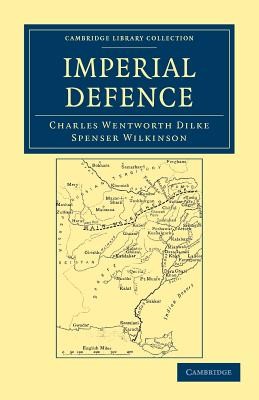
- We will send in 10–14 business days.
- Author: Charles Wentworth Dilke
- Publisher: Cambridge University Press
- ISBN-10: 1108044735
- ISBN-13: 9781108044738
- Format: 14 x 21.6 x 1.4 cm, minkšti viršeliai
- Language: English
- SAVE -10% with code: EXTRA
Reviews
Description
The liberal Radical MP Sir Charles Wentworth Dilke (1843-1911) campaigned for (among many other causes) votes for women and labourers, legalisation of trade unions, and universal education. His republican sentiments damaged his political reputation, and earned him the hostility of Queen Victoria. However, despite his views on the monarchy he was an imperialist, and his early work, Greater Britain (1868; also available in this series), was widely read. In the 1890s he became known as a parliamentary expert on military, colonial and foreign affairs. This 1892 work, co-written with Spenser Wilkinson (1853-1937), a journalist and military historian, together with Dilke's earlier work, Problems of Greater Britain, led to the founding of a parliamentary committee on imperial defence. The book argues that, while hoping to avert war by diplomacy, the Government has a duty to maintain a naval and military force to protect the interests of its citizens.
EXTRA 10 % discount with code: EXTRA
The promotion ends in 22d.03:53:41
The discount code is valid when purchasing from 10 €. Discounts do not stack.
- Author: Charles Wentworth Dilke
- Publisher: Cambridge University Press
- ISBN-10: 1108044735
- ISBN-13: 9781108044738
- Format: 14 x 21.6 x 1.4 cm, minkšti viršeliai
- Language: English English
The liberal Radical MP Sir Charles Wentworth Dilke (1843-1911) campaigned for (among many other causes) votes for women and labourers, legalisation of trade unions, and universal education. His republican sentiments damaged his political reputation, and earned him the hostility of Queen Victoria. However, despite his views on the monarchy he was an imperialist, and his early work, Greater Britain (1868; also available in this series), was widely read. In the 1890s he became known as a parliamentary expert on military, colonial and foreign affairs. This 1892 work, co-written with Spenser Wilkinson (1853-1937), a journalist and military historian, together with Dilke's earlier work, Problems of Greater Britain, led to the founding of a parliamentary committee on imperial defence. The book argues that, while hoping to avert war by diplomacy, the Government has a duty to maintain a naval and military force to protect the interests of its citizens.


Reviews